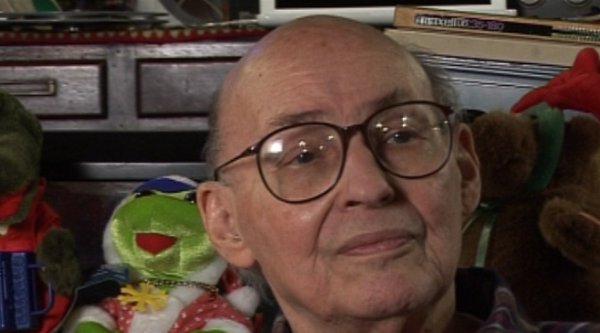NEXT STORY

Unexpected problems with language machines
RELATED STORIES

NEXT STORY

Unexpected problems with language machines
RELATED STORIES


|
Views | Duration | |
|---|---|---|---|
| 71. Freeman Dyson proves what I couldn't | 4603 | 03:17 | |
| 72. Solving Emil Post's problem | 3565 | 03:00 | |
| 73. Solving Post's unsolvable problem leads to the 'Minsky Machines' | 1 | 3400 | 03:49 |
| 74. Andrew Gleason's eight year plan of attack | 3215 | 03:40 | |
| 75. 'You can pull something with a string, but not push it' | 3055 | 02:02 | |
| 76. Will machines ever understand Aesop's fables? | 3001 | 00:51 | |
| 77. Analogy is the difference between human and computer thinking | 2 | 3143 | 05:07 |
| 78. Developing ideas of intelligence in the 1960s | 2647 | 02:01 | |
| 79. Unexpected problems with language machines | 2666 | 00:50 | |
| 80. The history of the laws of physics | 2857 | 02:44 |


By the early 1960s I had a collection of ideas about how intelligence works and I tried to write a book, but I didn’t know enough, so I wrote a rather long paper which was called Steps Towards Artificial Intelligence, but it really was steps towards theories of how thinking works. And it was quite a long essay with sort of six big chapters and each of them suggested a... a couple of areas in which we should do research. Like how do we... how could we understand... how could we make machines that could recognize different kinds of patterns and... and find what’s significant among a... a chain of events or how could we make a machine that could understand the meanings of words or... and things like that. And for the next 10 years or so, we had quite a number of students who evolved different theories about and experiments and computer programs that could do one or another aspect of... of these many different aspects of... of common sense and ordinary thinking.
Now... this continued to develop in many different ways by wonderfully talented young people till... till the middle 1980s and we were having some influence on a... research in a few other universities and laboratories around the world.
Marvin Minsky (1927-2016) was one of the pioneers of the field of Artificial Intelligence, founding the MIT AI lab in 1970. He also made many contributions to the fields of mathematics, cognitive psychology, robotics, optics and computational linguistics. Since the 1950s, he had been attempting to define and explain human cognition, the ideas of which can be found in his two books, The Emotion Machine and The Society of Mind. His many inventions include the first confocal scanning microscope, the first neural network simulator (SNARC) and the first LOGO 'turtle'.
Title: Developing ideas of intelligence in the 1960s
Listeners: Christopher Sykes
Christopher Sykes is a London-based television producer and director who has made a number of documentary films for BBC TV, Channel 4 and PBS.
Tags: 1960s, Steps Toward Artificial Intelligence, 1980s
Duration: 2 minutes, 2 seconds
Date story recorded: 29-31 Jan 2011
Date story went live: 12 May 2011